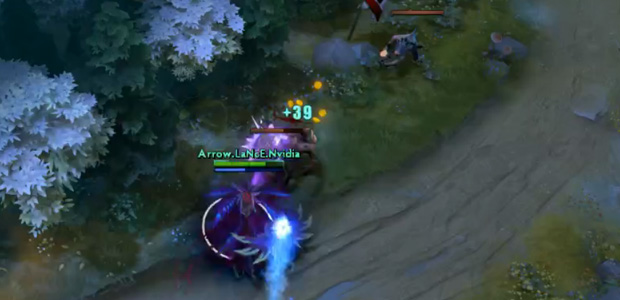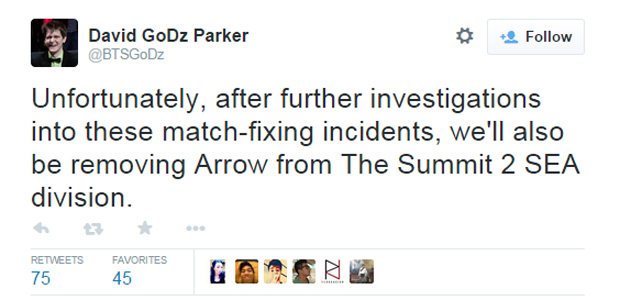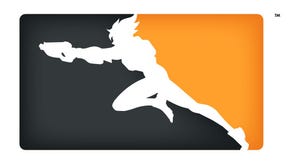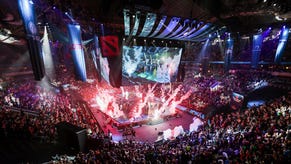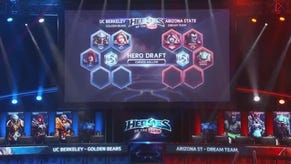Dote Night: BTS and joinDOTA On Fixing Match-Fixing
eSports organisations versus match-fixing
Part of a miscellany of serious thoughts, animal gifs, and anecdotage from the realm of MOBAs/hero brawlers/lane-pushers/ARTS/tactical wizard-em-ups. One day Pip might even tell you the story of how she bumped into Na’Vi’s Dendi at a dessert buffet cart.
Last week I went into detail about the match-fixing scandal which affected three teams from the South East Asia region. For this week's Dote Night I've been in touch with David 'GoDz' Parker of Beyond The Summit (BTS) whose tournament was affected by one of the teams, and with Dennis 'HolyMaster' Schumacher, who's responsible for the joinDOTA organisation's tournaments. I wanted to talk to them about how eSports organisations handle match-fixing allegations as well as why doing so is important.
First up, it's interesting to note the difference between match-fixing and cheating. According to GoDz, "In-game cheating within Dota 2 doesn't currently exist as it does with other games such as Counter-Strike (aim/wall hacking) or as it did back in the original WC3 Dota (map hacking)." Beyond the Summit also don't have an exact definition of cheating, preferring instead to talk in terms of rule violations – players from other teams participating in matches under an alias, for example. In most incidents rule violations are considered only when they occur in a BTS tournament. Match-fixing is an anomaly in that "we look at cases of match-fixing even in non-BTS tournaments."
Schumacher puts it like this: "Cheating has the goal of giving yourself an unfair advantage within a competition, undermining everyone who fights honestly. Match-fixing is disrespecting the competition, using it to gain an advantage somewhere else. Both share one substantial consequence though: They manipulate the balance and fairness of a competitive environment, ruining the meaning and reputation of sport."
The reason it's important to pick up on match-fixing and cheating is tied up in what Schumacher says – players and fans need to know that the matches in any given tournament are fair. It has to be worth watching or worth playing. If you're aware that the other team might just throw a game or be using unfair means to get an advantage then the contest loses its integrity. "Preventing this in all kinds of tournaments is important," says Schumacher, "because it makes people lose trust in what they are watching and who they are following. And a sport is absolutely nothing without the fans who support it."
But there's a big difference between wanting to eradicate a problem and being able to do so. That's why I asked both about how their respective organisations go about tracking down misconduct. For joinDOTA there's a distinction between the pro and amateur matches. Professional teams feature known teams and get a referee assigned to each match. The referee is responsible for hosting the match, the match settings and so on. They also keep an eye out for rule breaking or suspicious behaviour. There are maybe 1,000 amateur matches each week for joinDOTA League so the referee system isn't feasible. Instead joinDOTA relies on those teams to flag up anything untoward.
Beyond the Summit mentions relationships with online betting companies like Dota2Lounge where you can wager cosmetic items on the outcome of a game. "Even if it isn't real world money, the virtual item betting of cosmetics which are worth decent money is very big for esports," explains GoDz. They also sometimes work with bookmakers from other organisations. "We aren't really able to ever solely decide a game is match-fixed based on watching the game for suspicious behavior," says GoDz. "It's not conclusive, and is something only ever taken into consideration with ample other evidence.
Both organisations stress the importance of thorough investigation from a neutral point of view. You won't get handed a lifetime ban simply because of an unfounded accusation on Reddit from a disgruntled fan. These bans are the result of research using a variety of sources and types of data.
Actually, as GoDz points out, that research isn't always exclusively done within the organisation in question:
"With the recent incidents involving Mineski, MSI, and Arrow, the information was presented to us from outside parties in the form of suspicious bets, and also leaked Facebook logs admitting to the match-fixing in the case of Mineski/MSI teams. With regards to Arrow, there was a much more extensive investigation due to there being no admission of guilt from the team. We were contacting numerous people within the SEA scene, and getting a lot more involved in the investigation directly ourselves through our network."
He also points out that the only other incident of this kind occurred years ago before BTS ran international tournaments. In case you were wondering, he's referring to the match-fixing involving Solo which I told you about last week – when '322' became synonymous with match-fixing.
Actually, getting back to what happened with Arrow I asked for a bit more detail on how BTS handled the investigation. Here's what GoDz said:
"Our first (and always the most important) action is to look at the betting logs. Dota2Lounge tracks bets to Steam accounts and also can check based on IP/cookies if they suspect players are betting on alternate accounts that aren't their own. There is still the possibility of players being bribed to throw the matches and not placing any bets against themselves, with the bets coming entirely from a third party, but even in these situations there will be numerous suspicious bets. Looking for high value bets on underdogs or numerous bets all coming from the same country with high value are tell-tale signs that we ran into a lot of with the match involving Arrow.
"With Arrow, we had to confirm and try to piece all the information together. There was still some holes in various places, no admission of guilt, and no direct proof linking to the team and players apart from their girlfriends betting against them the players did not bet on this match themselves. We contacted various people close to the team or to the SEA Dota scene and sought out more information as well as addressed the team directly once we felt we had ample evidence of the match-fixing [...] there were additional details in our investigation not available to the public and enough evidence regardless that made us confident we'd made the right decision. Ultimately, a few days later after further information came out, Arrow admitted their involvement in the match-fixing incident."
Regarding the next steps, I've said before that I thought it was an odd choice that Arrow's disqualification was revealed while the team were mid-match. But to me it seemed to be a move born out of wanting to preserve the integrity of the tournament at all costs.
"It was just terrible timing," says GoDz. "The investigation of Arrow had been on-going for some time and was being led by myself with the final details and decision coming out just as their match was underway. The tournament side of things was being handled by the admins and casters for that day, so I wasn't directly involved, although I was in contact with them once a decision was made. Looking back, it would have made more sense to wait until the match had ended before announcing the decision. I felt getting the information and announcement out as soon as it was ready was the most important thing and didn't take into consideration other aspects such as the ongoing match of theirs."
In terms of how commonplace match-fixing is within Dota 2, there have only been two high-profile incidents that I can remember. The one involving Solo and the recent incident involving the three SEA teams. Schumacher says it's a growing concern, though. "Overall there have been very few cases where we had to investigate cheating in the past three years. Match-fixing, on the other hand, is becoming more and more dangerous since more money is flowing around the scene in general. So this topic's significance is definitely increasing both publicly and internally and we will have an even closer look at it in the future."
In terms of the impact match-fixing by Arrow, MSI and Mineski players could have on professional Dota, GoDz notes that it will be felt most keenly in the SEA region – "The organizations and Filipino scene reputation became slightly tarnished as a result, and sponsors who read about this are far less likely to want to do anything to help support or grow the SEA scene."
In terms of the effect on Beyond The Summit he adds, "We have strong ties to the SEA scene, and I personally know the Mineski organization very closely, their managers are close friends of mine, so the incident put me in an awkward position. Luckily, Mineski were very cooperative and helped out with their own investigation into the players and incident itself." Beyond The Summit's current stance is that "not continuing our involvement [in SEA] is the worst possible response from our end. We understand some organisations or sponsors may be inclined to back away from running events for this region but we don't believe that will be beneficial in any way."
Understanding why players might engage in match-fixing could go a long way to mitigating the problem. Match-fixing is about making money by throwing matches which generally don't have an impact on tournament progression. As Schumacher says, "it's sometimes possible to earn more money by betting than you can earn by winning."
According to GoDz, "Almost all cases within Dota2 have involved players who are not playing on top teams, but are struggling to break through while playing close to full-time and only earning a small fraction of the income the top players are. It's entirely money and greed driven, but not greed in the sense that these players are already earning decent money."
He adds, "I think the main thing which we are looking to address is the tournament format. Reducing the amount of 'meaningless' matches in any tournament drastically reduces the incentive to match-fix. If every match a team plays has some importance as to their tournament placing or direct earnings then a team is much less likely to match-fix when it comes to major events. For smaller prize-pool online cups it's not going to do as much, but for events like Starladder and The Summit with over $250k prize-pools it would have a direct impact."

